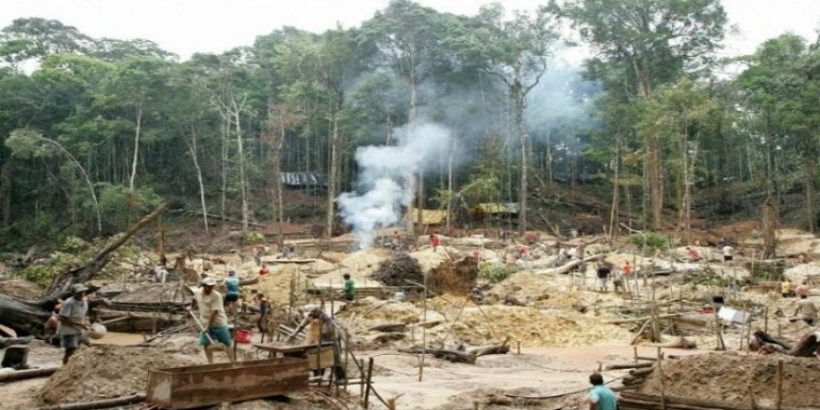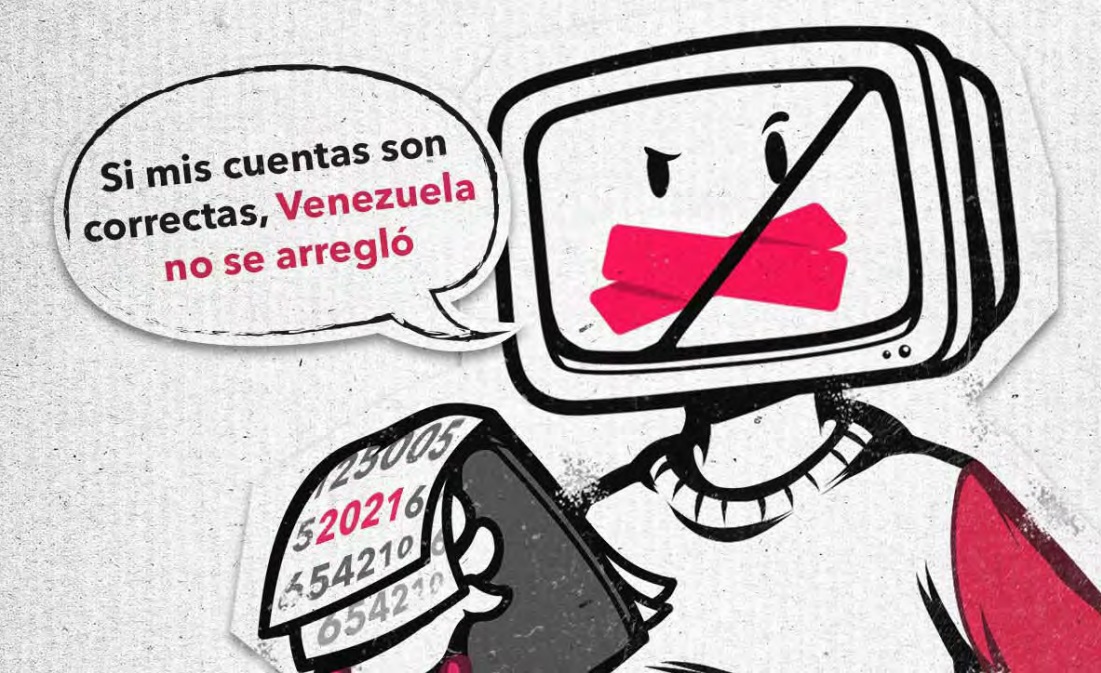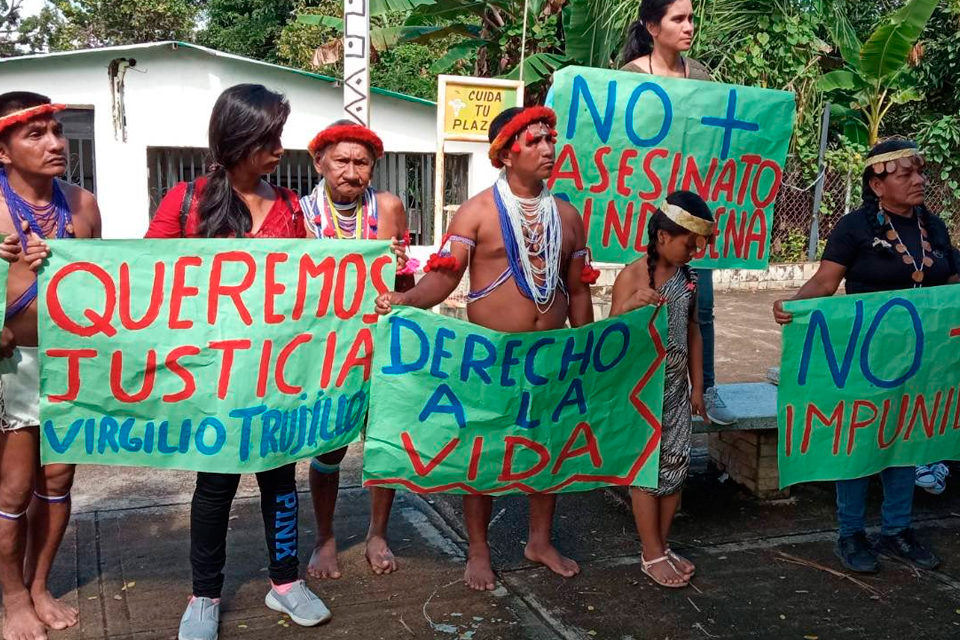These are not the first words of encouragement and endorsement to the abusers. Nicolas Maduro, both in his former constitutional rule and in his de facto government now has sent repeated messages of support to those who prop up his regime through repression and human rights violations. “I pledge all support to you. Logistical, physical. All support to the FAES, in their daily labor of providing safety for the people.” Maduro proclaimed, in a kind of oxymoron, last Tuesday night during a ceremony celebrating the National Police day.
What’s special about this latest endorsement to repression is that it occurred a few days after the High Commissioner for Human Rights, Michelle Bachelet urged the regime to dissolve the elite force of the National Bolivarian Police, which has been denounced by victims, the press and NGOs of being involved in hundreds of extrajudicial executions, and other crimes against human rights. In the commissioner’s report about the situation in Venezuela, presented on July 5th in Ginebra, the Office of the High Commissioner for Human Rights said: “thousands of people, mainly young men, have been murdered in alleged confrontations with state forces in recent years. There are reasonable motives to believe that many of these deaths constitute extrajudicial killings perpetrated by security forces, in particular, the FAES. The office of the High Commissioner is concerned that the government is using FAES and perhaps other security forces as part of a policy of social control. These violent deaths require an immediate investigation to ensure the responsibility of the perpetrators and to ensure it does not repeat.”
The Special Actions Forces of the National Bolivarian Police (FAES by their initials in Spanish) were officially presented by Nicolas Maduro on July 14th, 2017. At the time Maduro said the elite group had been created to combat “organized crime and terrorism”. The FAES began their long journey of abuses with a massacre, broadcasted through social media in which venezuelan pilot Oscar Pérez and his companions were murdered despite having surrendered to authorities. After that, numerous operations by the organization left dozens of deaths, showing their disregard for standards that regulate the use of progressive and differentiated force, and evidencing their recurring practice of extrajudicial killings, presented to the public sphere as “casualties of confrontations”. To date, the FAES are involved in more than 400 cases of alleged extrajudicial executions occurred during operations on several states of the country.
In turn, the OHCHR urged the Venezuelan government to “(…) Dissolve the FAES and establish a national mechanism that’s impartial and independent, with the help of the international community, to investigate the extrajudicial executions that have taken place during the course of security operations, to make sure those responsible are accountable, as well as their victims are compensated.” Despite this urgent call, Nicolas Maduro insists in encouraging the actions of this death squad, not only showing his unwillingness to follow the commissioner’s advice, but also his strong determination in worsening the state of human rights in the country
Rewarding abuses, strengthening impunity
In 2016, a year before the creation of the FAES, during a ceremony to swear in the 2nd promotion of officers of the “Antiterrorism Command” of the Bolivarian Intelligence Service (SEBIN in Spanish), that took place on August 25, at Barlovento, Miranda, Nicolas Maduro saluted the graduates through a phone call, in which he openly encouraged them to commit abuses and police executions. “We must strike violence and terrorism before they act… Our greatest victory is is a preemptive strike. To neutralize them, disconfigurate them, disarm them, disarticulate them, take them down before these terrorists can act,” he expressed. Maduro claimed then that crime gangs were vinculated and directed by factions of the venezuelan opposition, “go forth and get victories right now (…) In Venezuela, terrorism has a full name, it’s these parasite groups, traitors from the right… That have aligned themselves with criminal gangs of murderers and kidnappers, by giving them money and drugs, they’ve turned these bands into instruments of violence, of criminal violence in the first place, but also of terrorist violence.”
A month later, on October 8 of that year, some 1300 agents of the army and other security forces, deployed a Liberation of the People operation in the area of Barlovento. In its first phase, the operation left 5 young men dead in the Casupo Arriba sector. According to authorities, these people died during a confrontation with members of the Antiextortion and Kidnapping Command of the Bolivarian National Guard. Several others were detained during the execution of the OLP in various sectors of Barlovento. 45 days after the start of the operation, it was known that 13 of those detained in the illegal raids and deployed checkpoints were murdered and buried in mass graves. One of those detained, died due to torturing inflicted on him.
On both ocassions, SEBIN and the Ministry of Popular Power for Internal Affairs, Justice and Peace were under the command of the same man: Gustavo González López, a hard-line soldier (educated in The School of the Americas), who was fired from the leadership of SEBIN after the death (presumably due to torture) of the opossition councilman Fernando Albán, who was under custody of that police force. González López was reassigned as chief of SEBIN on may 2019. An award for his long history of abuses.
Gónzalez López isn’t the only one rewarded. Servicemen and policemen of different ranks, and even professional troops of the FANB, involved in serious human rights abuses during the context of protests or during operations of civil security, have benefited from promotions, socioeconomic benefits, appointments in public administration, condecorations and other perks. The FAES have received this latest endorsement by Maduro to carry on committing abuses and murders amongst the poorest venezuelans.
In Maduro’s Venezuela, the power of the state is used to commit violations of the human rights it ought to protect and guarantee. In this scenario of the disappearance of the rule of law and access to justice, impunity is not only favored with the absence of investigations, sanctioning of those guilty and of mechanisms for accountability. The creation of a legal framework that favors human rights abuses and the protection and absolution of those responsible, in addition to symbolic and real encouragement provided from the upper rungs of power to the perpetrators of such crimes, lead to an endless spiral of abuses that will continue claiming victims if it’s not stopped soon.
Proves reminds that states, regardless of being under de facto and illegitimate powers, incur on international responsibility when its judicial organs do not investigate and sanction those responsible of abuses and when those in power encourage the commitment of crimes so openly.




